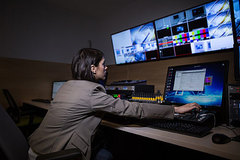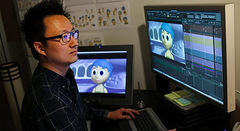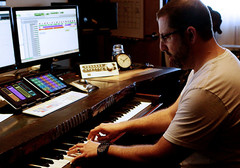Processing Request...
Processing Request...


Art directors are responsible for the visual style and images in magazines, newspapers, product packaging, and movie and television productions. They create the overall design of a project and direct others who develop artwork and layouts.
了解更多

Craft and fine artists use a variety of materials and techniques to create art for sale and exhibition. Craft artists create handmade objects, such as pottery, glassware, textiles or other objects that are designed to be functional. Fine artists, including painters, sculptors, and illustrators, create original works of art for their aesthetic value, rather than for a functional one.
了解更多

Dancers and choreographers express ideas and stories, using dance. There are many types of dance such as ballet, tango, modern dance, tap, and jazz.
了解更多

Fashion designers create original clothing, accessories, and footwear. They sketch designs, select fabrics and patterns, and give instructions on how to make the products they designed.
了解更多

Film and video editors and camera operators record images that entertain or inform an audience. Camera operators capture a wide range of material for TV shows, motion pictures, music videos, documentaries, or news and sporting events. Editors construct the final productions from the many different images camera operators capture. They collaborate with producers and directors to create the final production.
了解更多
.jpg)
Game designers design graphics for game art and maps includes animating the characters and designing any virtual reality environments used, while game developers work on teams to plan, design, and produce video games for computers, mobile devices, or game consoles.
了解更多

Graphic designers create visual concepts, by hand or using computer software, to communicate ideas that inspire, inform, or captivate consumers. They develop the overall layout and production design for advertisements, brochures, magazines, and corporate reports.
了解更多

Interior designers make interior spaces functional, safe, and beautiful by determining space requirements and selecting decorative items, such as colors, lighting, and materials. They read blueprints and must be aware of building codes and inspection regulations.
了解更多

Multimedia artists and animators create animation and visual effects for television, movies, video games, and other forms of media.
了解更多

Music directors (also called conductors) lead orchestras and other musical groups during performances and recording sessions. Composers write and arrange original music in a variety of musical styles.
了解更多

Photographers use their technical expertise, creativity, and composition skills to produce and preserve images that visually tell a story or record an event.
了解更多

Producers and directors create motion pictures, television shows, live theater, and other performing arts productions. They interpret a writer’s script to entertain or inform an audience.
了解更多